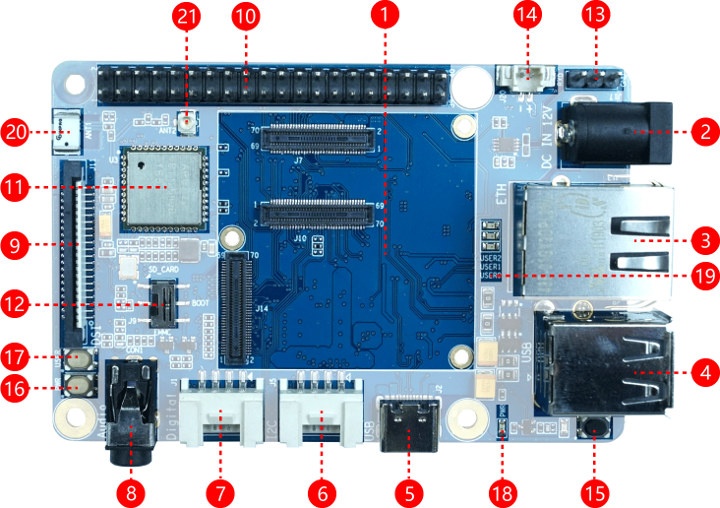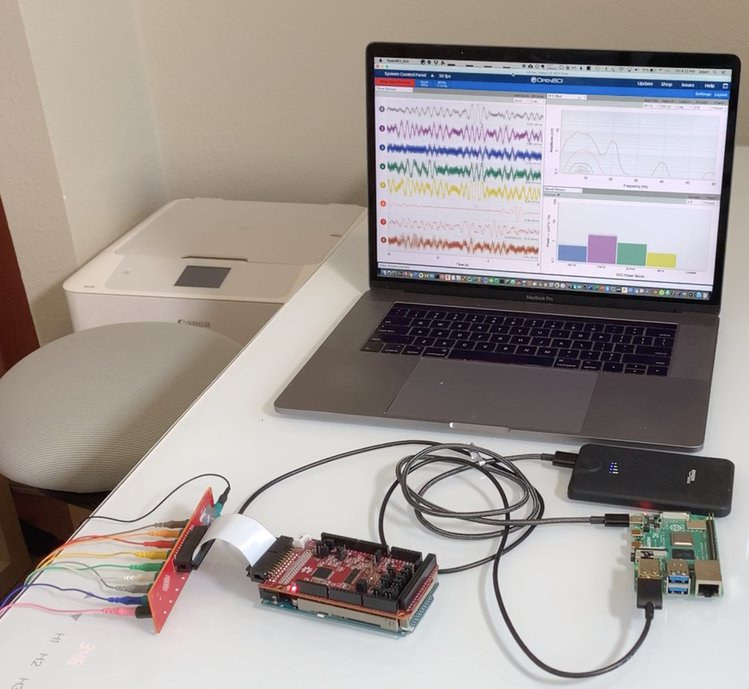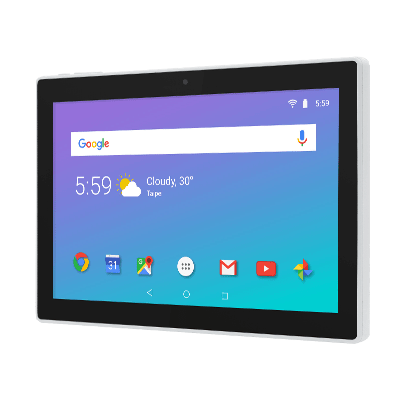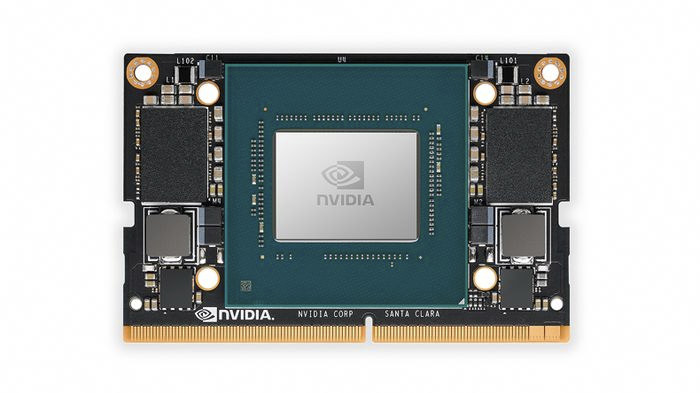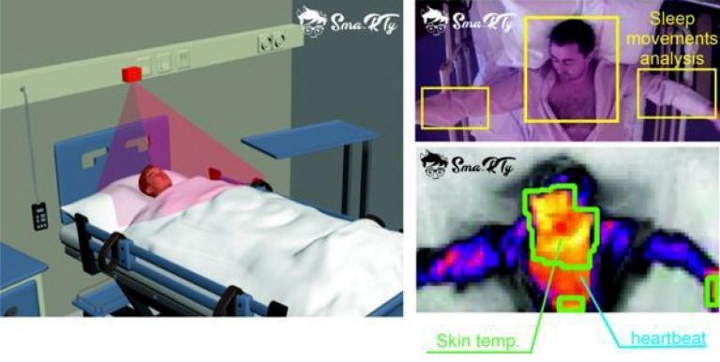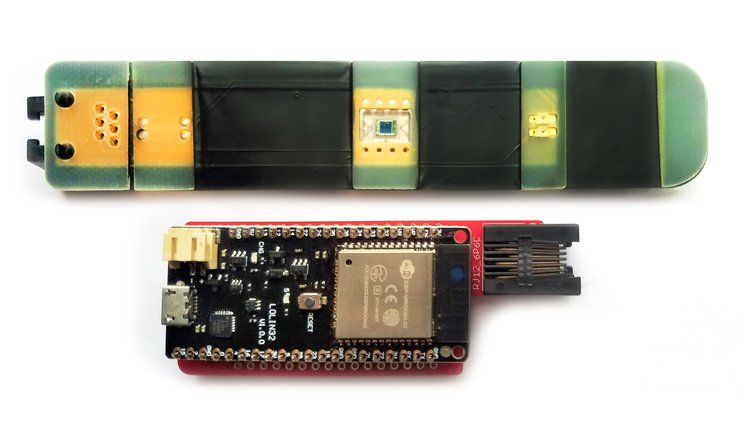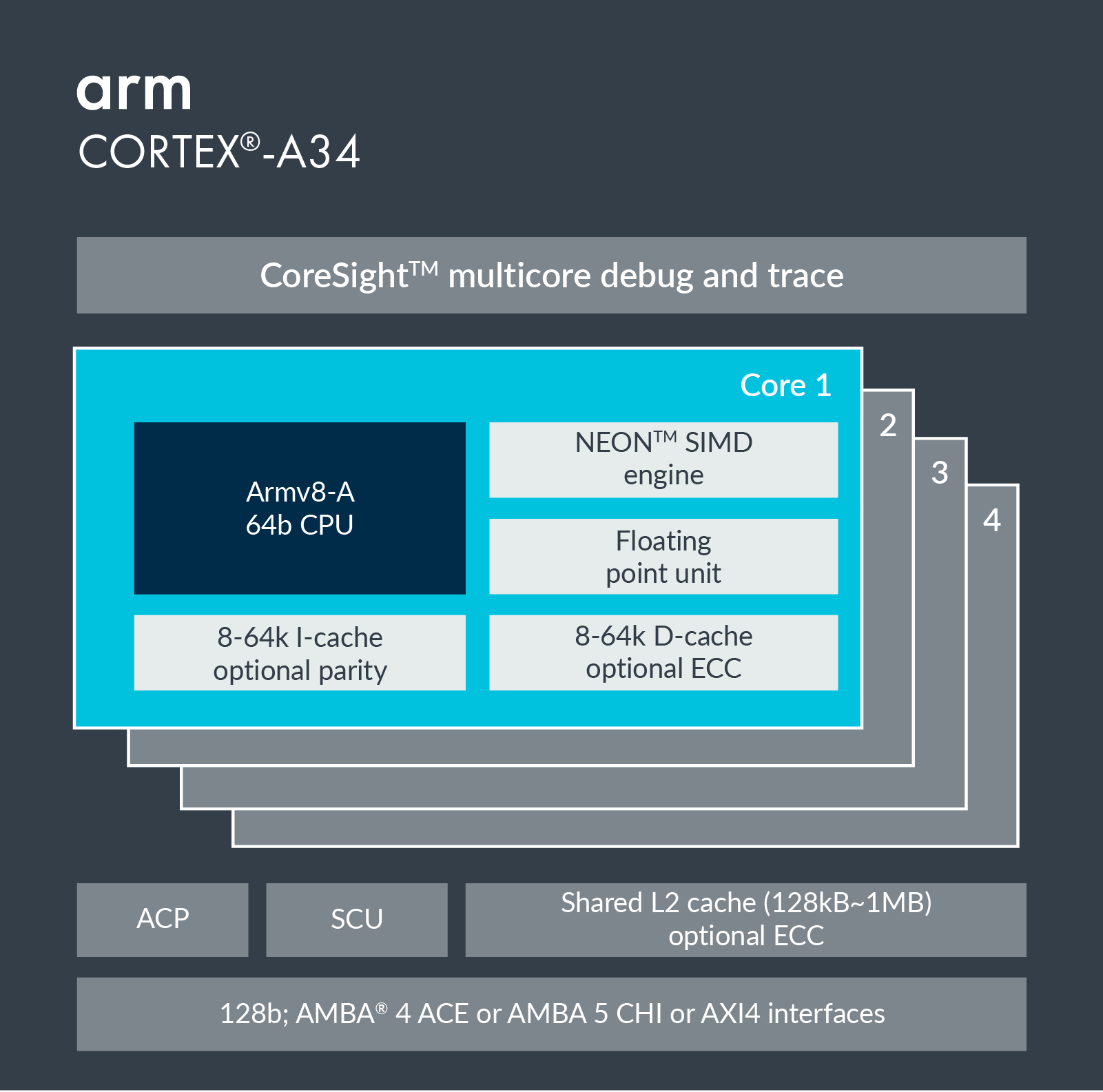Seeed Studio has been working on a single board computer powered by STMicro STM32MP157C Arm Cortex-A7/M4 microprocessor, comprised of the Raspberry Pi inspired NPi-STM32MP157C baseboard, and SoM-STM32MP157C system-on-module. SoM-STM32MP157C SoM Module specifications: MPU (1) – STMicro STM32MP157C dual-core Arm Cortex-A7 processor @ 650 MHz, and Arm Cortex-M4F MCU System Memory (2) – 512MB DDR3 RAM Storage (4) – 4GB eMMC flash Host Connectors – 3x 70-pin board-to-board connectors with HDMI, USB, Gigabit Ethernet, audio GPIOs, etc… Misc – Power and USER LEDs PMU (3) – STPMIC1A power management IC Dimensions – 38mm x 38mm The module is said to targets consumer and industrial applications, white goods, medical equipment, and wearable devices. NPi-STM32MP157C baseboard Key features and specifications: SoM Support – Compatible with SOM-STM32MP157C described above Storage – MicroSD card slot Display I/F – 1x MIPI DSI interface Audio – 3.5mm audio jack, WM8960 audio codec Camera I/F – 1x […]
HackEEG Arduino Shield Reads Signals from Your Brain (EEG), Muscles (EMG), and Heart (EKG)
Biosignals are signals from living beings that can be continually measured & monitored, and some common methods to measure those biosignals include electroencephalogram (EEG) to monitor the electrical activity in your brain, electromyography (EMG) for recording the electrical activity produced by skeletal muscles, and electrocardiogram (EKG or ECG) to measure electrical activity of your heartbeat. Those can be used for brain interfaces which according to a recent Ericsson’s report may become commonplace by 2030 with users just thinking about commands, prosthetic arms, health and disease monitoring, and so on. Starcat has designed the HackEEG shield to experiment with all those three methods using an Arduino board and electrodes. HackEEG features and specifications: TI ADS1299 8-Channel, 24-Bit ADC for biopotential measurements SPI EEPROM for storing configuration data 8x analog-digital conversion (ADC) channels, each with a 24x programmable-gain amplifier (PGA). Up to 4x shields can be stacked on one Arduino Due for […]
Arbor M1016 10.1″ Medical-Grade Tablet Targets Infotainment & Kiosk Applications
Arbor M1016 Healthcare & Kiosk Tablet Arbor offers various products in the embedded systems field, automotive IoT and healthcare infotainment, as well as patient interfaces for hospitals. The M1016, a 10.1″ Healthcare Infotainment Terminal is a soon to be released alternative to the company’s HTab. Previous Articles for Arbor HTab healthcare bedside patient entertainment tablet and the IoT-800N Automotive Panel PC have both been reported on in previous articles about Arbor market entrants. The Basics and Kiosk Design The M1016 runs an Arm Cortex-A35 CPU @ 1.5GHz, that supports Android 8.1, and offers a variety of features for many of the different capabilities of patients under care. The design is based on a Kiosk model, with an a-la-carte menu arrangement. Access and Power Consumption The unit itself is fanless with low power requirements that lend themselves well to thin enclosure design and ease of use. The GPU is a Mali-G31 […]
NVIDIA Jetson Xavier NX SoM Delivers up to 21 TOPS for AI Workloads at the Edge
NVIDIA has just announced Jetson Xavier NX system-on-module, with the company claiming it is the “world’s smallest, most powerful AI supercomputer for robotic and embedded computing devices at the edge” with a 70x45mm “Jetson Nano” form factor, and delivering either up to 14 TOPS at 10 Watts or 21 TOPS at 15 Watts. The company expects the module to be used in small commercial robots, drones, intelligent high-resolution sensors for factory logistics and production lines, optical inspection, network video recorders, portable medical devices, and other industrial IoT systems. Jetson Xavier NX specifications: SoC – NVIDIA Xavier with 6-core NVIDIA Carmel ARM v8.2 64-bit CPU, 6MB L2 + 4MB L3 caches, and a 384-core NVIDIA Volta GPU with 48 Tensor Cores, 2x NVDLA deep learning accelerators delivering up to 21 TOPS at 15 Watts System Memory – 8 GB 128-bit LPDDR4x @ 51.2GB/s Storage – 16 GB eMMC 5.1 flash Video […]
AuverCare is a Predictive AI 24/7 Monitor for Patients and Elderly
Information on the Internet for Monitoring Patients and Elderly If you are in the healthcare field or caring for an elderly or disabled person, you know all about trying to keep them safe. The internet is crowded with camera and audio monitors, wearable fall alert alarms, and the emergency services connected panic button. All these devices have one problem, they only work after there is a problem. What is Predictive AI? There has been a great deal of chatter since the 2016 announcement of a future predicting AI platform. The article reported on this platform was Predicting the Future – especially use cases such as falls by the elderly. With the advances in the field of AI and object recognition and behavior that is based on data gathered from a variety of sensors, it is not really a stretch to see a predictive healthcare monitor come onto the scene. Predictive […]
HEGduino IoT Real-time Neurofeedback Platform Aims to Increase Brain Function (Crowdfunding)
The HEGduino Alaskit has developed a way to measure the blood-oxygen levels in the brain and create a biofeedback system that is said to increase brain function. The new tech is called HEGduino and is a connection between a biofeedback method and an IoT platform. Past Reported Medical SBCs In the past, CNX has covered several health-based platforms for the Raspberry Pi (Healthy Pi HAT) and ESP32 (Hearty Patch, ECG reader) medical SBCs. HEG Particulars The HEG in HEGduino stands for Hemoencephalography, a neurofeedback technique similar to EEG measurements in brainwave activity. The difference is HEG can measure neural activity based on neurovascular coupling, which can be approached through near infrared and passive infrared techniques – both of which are ways to cerebral blood flow can be matched to metabolic activity. HEG Functions The HEG is a way to alter brain function through a series of “training” sessions based […]
Arm Cortex-A34 is a 64-bit Only Low-Power Core
Arm previously announced Cortex-A35 64-bit & 32-bit lower-power CPU core, and later on Cortex-A32 32-bit only Armv8 CPU core with the usual press release, and blog posts providing details about their new offering. But this morning, I saw a tweet about Cortex-A34… https://twitter.com/never_released/status/1157107187375886337 Based on the twitter handle, I first assumed it was “never released” ;), and was just an internal part name at Arm. But the new Cortex-A34 was actually very discreetly outed last month when Arm announced Flexible Access to lower the barrier of entry by allowing IC designers to access all Arm IP in the program, and only pay for IP blocks they actually use in the final product. Nevertheless, the product page and developer documentation are now up – albeit with limited info for the latter -, so we have more details. Some of the highlights of Arm Cortex-A34 core include: Architecture – 64-Bit Armv8-A Multicore […]
FOSSASIA 2019 Schedule – March 14-17
As its name implies, FOSSASIA is a Free and Open Source Software event taking place every year in Asia, more specifically in Singapore. I first discovered it last year, and published a virtual FOSSASIA 2018 schedule last year to give an idea about the subjects discussed at the event. It turns out FOSSASIA 2019 is coming really soon, as in tomorrow, so I’m a bit late, but I’ll still had a look at the schedule and made my own for the 4-day event. Thursday – March 14, 2019 10:05 – 10:25 – For Your Eyes Only: Betrusted & the Case for Trusted I/O by Bunnie Huang, CTO Chibitronics Security vulnerabilities are almost a fact of life. This is why system vendors are increasingly relying on physically separate chips to handle sensitive data. Unfortunately, private keys are not the same as your private matters. Exploits on your local device still have […]


